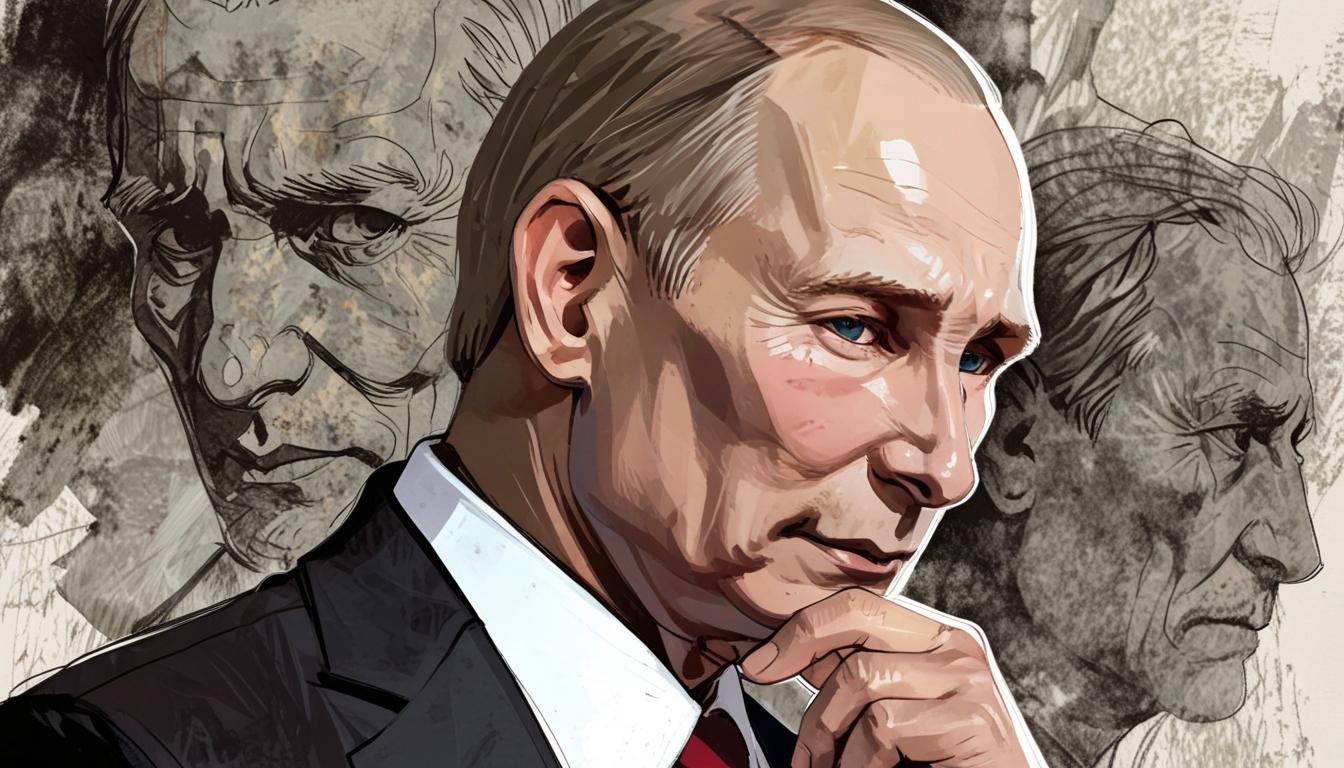In a recent statement, Ukrainian President Volodymyr Zelensky asserted that Russian President Vladimir Putin’s health is rapidly declining, boldly declaring during a meeting with French President Emmanuel Macron: “He [Putin] will die soon, and that's a fact, and it will come to an end.” This assertion adds to a long history of speculation regarding Putin’s well-being, which has prompted frequent denials from the Kremlin over the years.
The comments by Zelensky come amid ongoing concerns about Putin's health, particularly following an episode reported last week where he appeared to shake uncontrollably while meeting with Belarusian President Alexander Lukashenko. Abbas Gallyamov, a former Kremlin speechwriter, suggested that this behaviour could indicate “the consequences of a mini-stroke.” He remarked to the media, “He definitely has some [health] problems,” while pointing to previous reports linking Putin’s symptoms to conditions such as cancer.
Footage from prior public appearances also shows the Russian leader displaying erratic movements. In one notable incident during a speech in Astana, Kazakhstan, he appeared to struggle with his coordination, prompting speculation about his stability. Observers noted that his hands seemed to freeze during a national address, raising further eyebrows as they compared it to an earlier absence from public life, during which health rumours intensified.
In October 2023, a controversial Telegram channel reported alarming claims of Putin suffering a cardiac arrest, asserting that he had been found convulsing in his private residence. Though the claims lacked rigorous substantiation, they were part of a series of sensational allegations regarding his health, including assertions of terminal illnesses. The Kremlin’s response has been consistent in dismissing these reports as unfounded. Dmitry Peskov, the Kremlin spokesperson, labelled them "fake news" and expressed amusement at the idea of staged public appearances involving body doubles, stating, “He is well - this is no more than just another canard.”
Health speculations surrounding Putin have been rampant for several years. In April 2022, reports suggested a potential diagnosis of Parkinson’s disease based on observable tremors during public engagements. Professor Angus Dalgleish from St George's, University of London, commented on the symptoms seen in various public appearances, suggesting they "would be consistent with Parkinson's."
Earlier health concerns include reported diagnoses of pancreatic cancer and a schizoaffective disorder, alongside speculation about possible treatment for other severe conditions. Reporting dating back as far as 2014 has noted claims of Putin undergoing cancer treatment, all of which the Kremlin has vigorously denied. Peskov and other officials have repeatedly stated that inquiries into Putin's health tend to be dismissed as Western propaganda and disinformation.
The continuing narrative of Putin's health issues plays into broader geopolitical tensions, particularly linking them to the ongoing conflict in Ukraine. Zelensky's stark remarks about the Russian leader's mortality resonate against this backdrop, emphasising the unpredictable nature of leadership dynamics in global politics.
Source: Noah Wire Services
